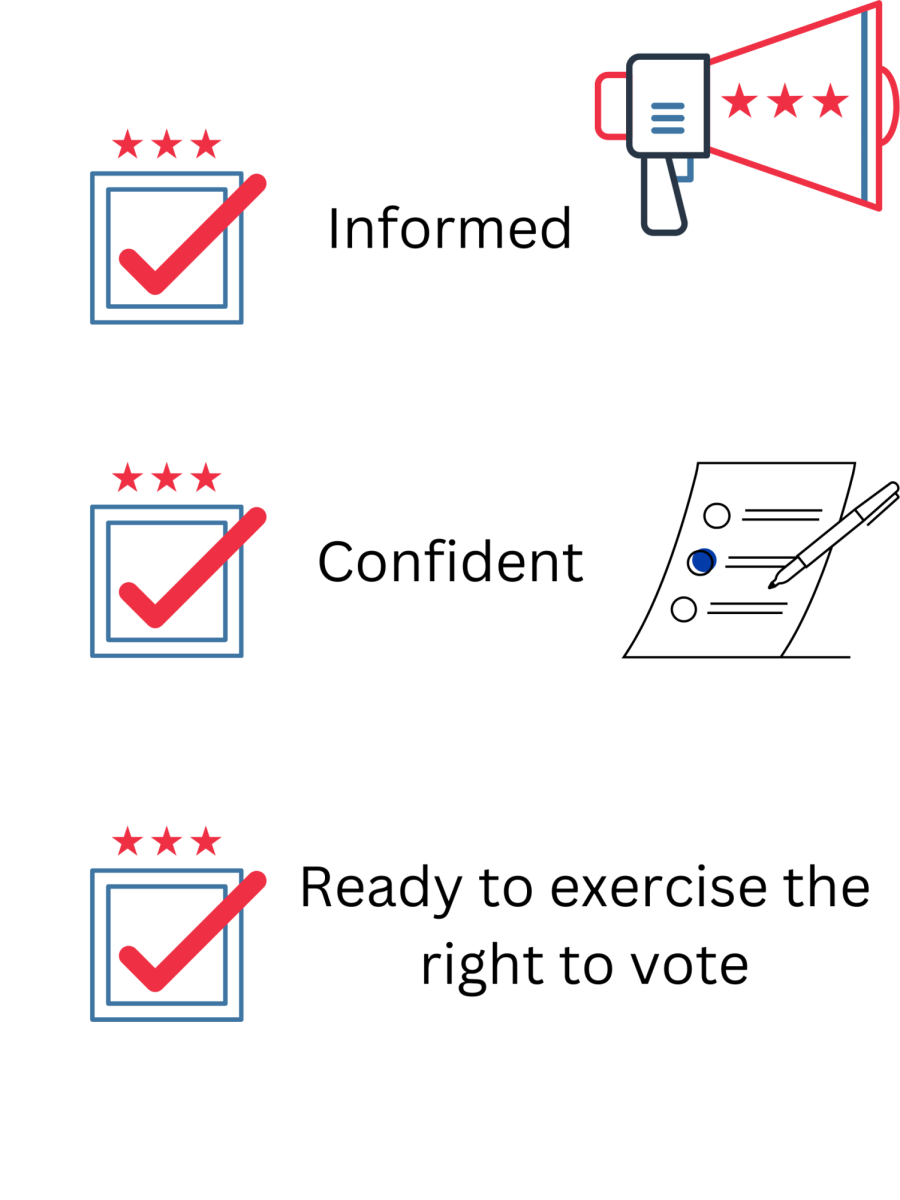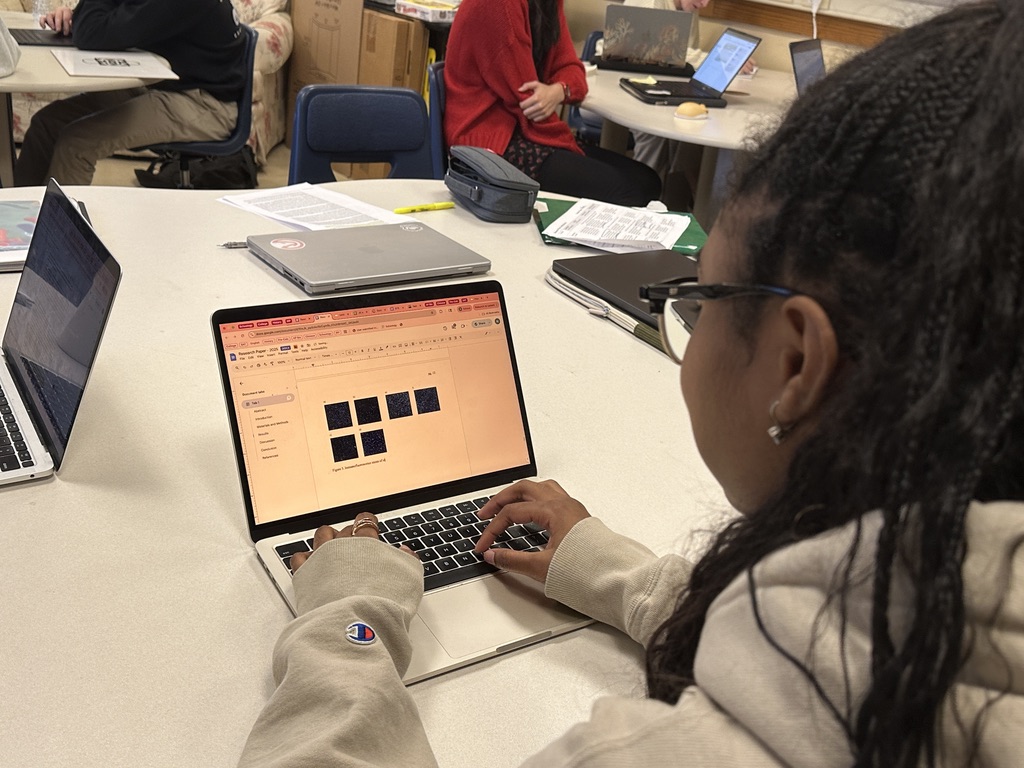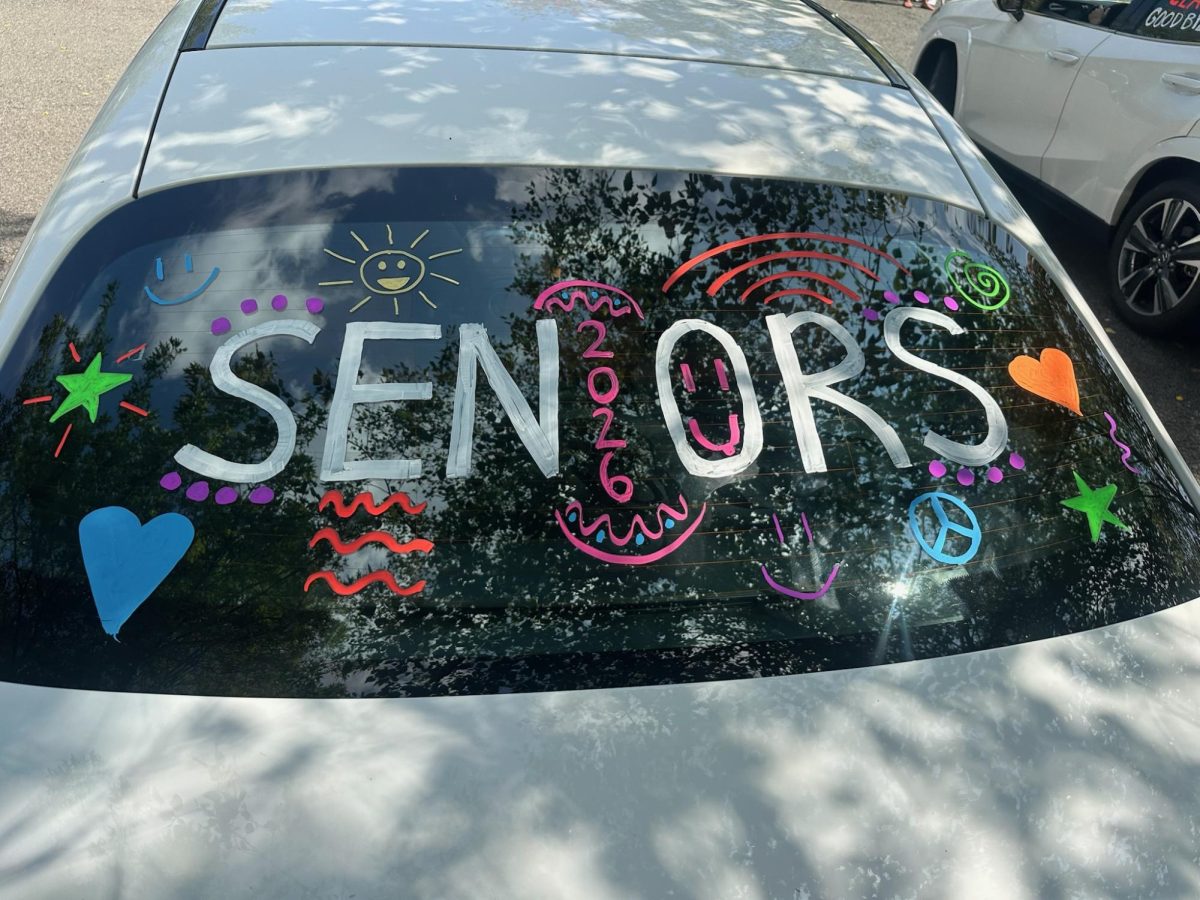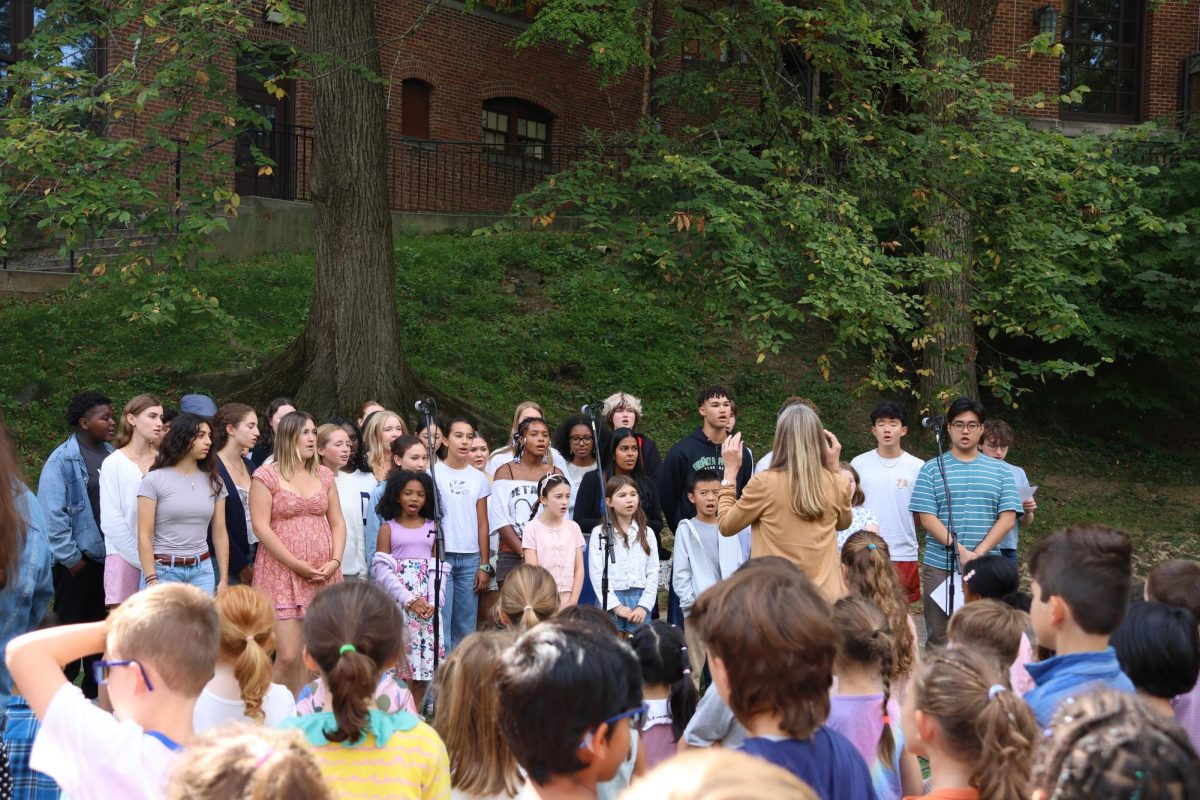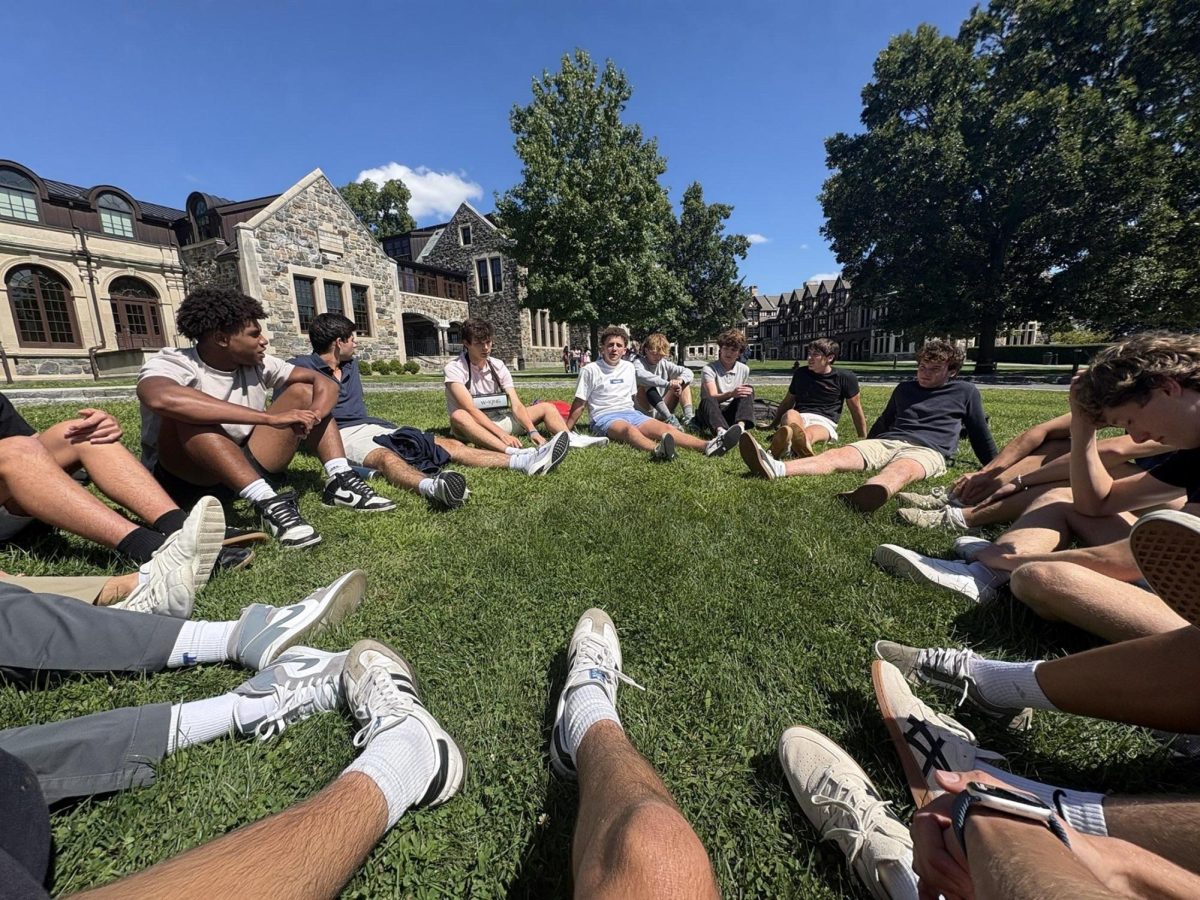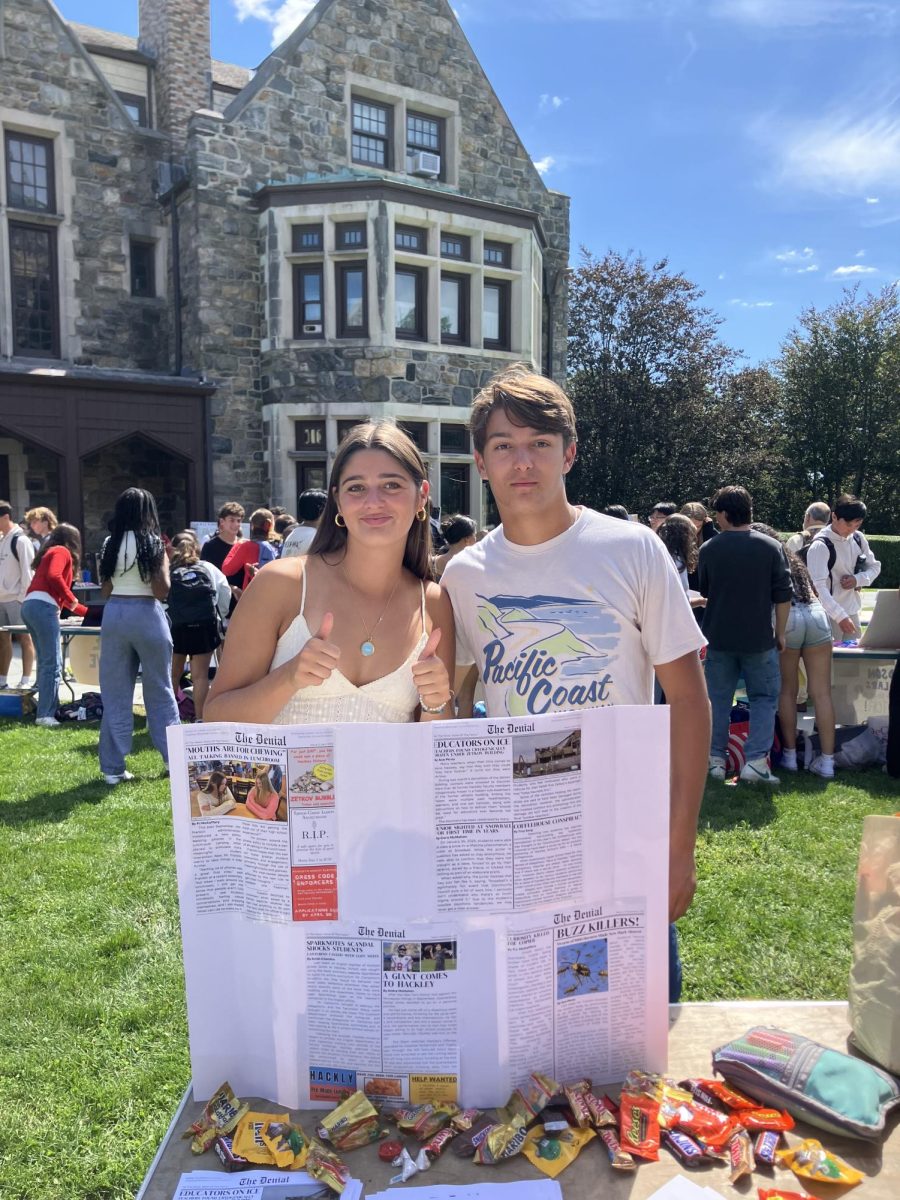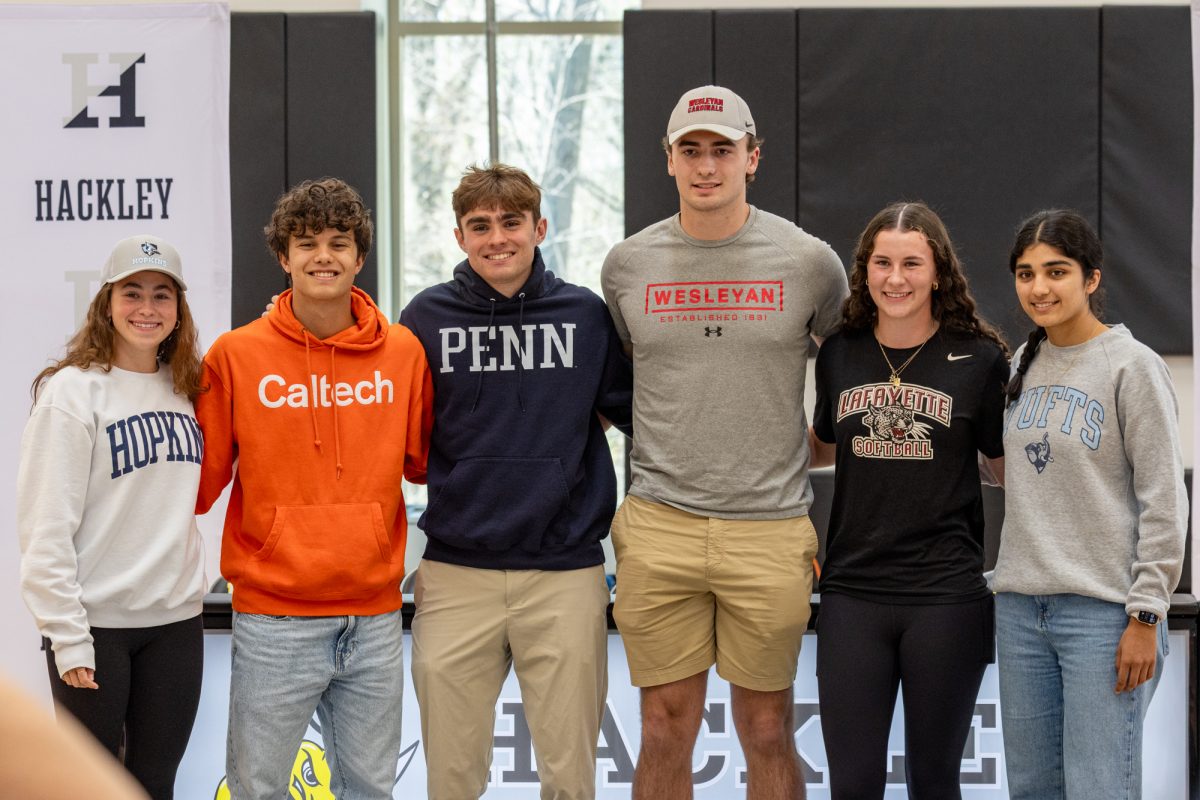Were 18-year-old students prepared to vote using governmental knowledge provided by Hackley? Teacher Stephen Fitzpatrick and his Government and Politics class shared their knowledge across campus with a video and presentation about the process of the Electoral College and why the United States uses it.
“With the election coming up, they’ve done a good job of informing everyone about how the election works because the Electoral College can be a little confusing. For the people who can vote, it has done a good job of making sure you know what you’re voting for and how the whole process works,” said senior Frances Clifford.
In the midst of the class’s plans, students wonder what Hackley has already done to educate the student body. The class had to reinforce American governmental policies that only some students were educated on.
“In the presentation, we [the class] all chose questions that were submitted by kids in the Upper School. We had to go into detail to clarify the confusion and reiterate some things that we had said in the video,” said junior Sarah Rotenberg.
The class worked to educate students on the aspects of voting that they hadn’t fully understood in history class.
“I don’t think we talk about elections that much, and I don’t think it was a topic that came up a lot. So I would say Hackley hasn’t prepared us specifically for elections, but I think they’ve made up for it with this election,” Frances said.
Reflecting on the steps Hackley has taken to educate students about the election, the line between educating and providing biased opinions can blur in any school atmosphere. Some people might believe that education about the election is coming from a place of bias, therefore forcing them to believe one side over the other.
“I don’t think there’s a lot you can say because then it could be considered biased, so I think the thing they should be doing is just telling people to vote,” said senior Brooke Koffler.
The class dissipated all election-based confusion, ensuring that students can leave knowing the weight of their words when they declare support for a candidate. Within these presentations, information about the Electoral College and the policies of different candidates was also provided. This is a way that Hackley is encouraging eligible voters to not just make assumptions based on the media and others’ opinions.
“A lot of it is media literacy, which I think is stressed in many history classes. I think most of being an informed voter comes from how you view the media, and many people view liberal-biased sources or sources with other biases. Having a well-rounded view of conflicts and what’s happening, so you can choose your viewpoints, is what Hackley has most effectively taught me,” said Sarah.
Though some seniors believe that their history classes should’ve done more to prepare them, there is a clear basis of voting education provided by Hackley that they can work to build upon. Each eligible voter should’ve felt well prepared to get out and vote on November fifth, after further preparation on their own time. The Government and Politics class’s efforts further show Hackley’s commitment to making its students more informed on global issues while its impact is contested by the student body.

